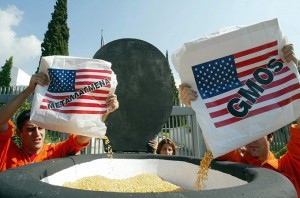
The relevance of California’s Proposition 37
By Steven Mulleady, Contributor
On November 6 is an important vote that, if passed, would require Californian businesses to label food made from certain genetically modified plants or animals and also creates prohibitions on marketing such food as ‘natural.’ Also included will be a regulatory body to implement the labeling and marketing restrictions, presumably costing the state from a few hundred thousand dollars to an estimated one million dollars. Such products were approved by the Food and Drug Administration (FDA) and other regulatory bodies with the sale and distribution of genetically modified organism (GMO) ingredients starting in the mid-‘90s. There wasn’t any scientific testing on the health implications, with the FDA citing that if a GMO ingredient has no nutritional difference to a conventional ingredient, then no labeling is required. However, this leaves the judgment of what constitutes a difference in these ingredients to agribusiness itself, an industry that has a history of poor quality standards for its employees and products in regards to self-regulation.
A few critics opposed to the proposition begin their stance by claiming that the labeling scheme is “deceptive” and that it’s just another intrusion of “Big Government” over the “free market.” It’s laughable that proponents of agribusiness would claim that such a regulatory scheme would impede on the free market when big businesses wouldn’t last without the state providing subsidies to such conglomerates, while also supporting a patent industry that destroys true innovation and the independence of farmers alike.
Also argued by these critics is that this legislation would force food prices to go up hundreds of dollars per year, when in reality this has not come true. For example, in Europe, the cost of food attributed to such labeling has increased less than two-tenths of one per cent. Then Commissioner of the Health and Consumer Protection for the European Parliament David Byrne said of the issue: “When the current labeling regime … was introduced in 1997, it did not result in increased costs, despite the horrifying (double-digit) prediction of some interests.” Recently in the US, a study done by the Emory University School of Law showed that “Consumers will likely see no increases in prices as a result of the relabeling required.”
It’s unsurprising that the biggest contributors to the “No” side of the campaign include such delights like Coca-Cola—one of the biggest users of genetically modified corn syrup for its popular drink—and Monsanto—the once chemical company, now a model ‘agricultural’ company that controls the majority of the seed market worldwide. One of the main engineering feats of Monsanto’s seeds is that they resist the effects of their most popular herbicide Roundup (no, not Agent Orange). However, Monsanto’s claim of Roundup being “tough on plants, but no more toxic to people and animals than table salt” was found to be false and the company itself was found guilty of false and misleading advertising for the above bogus claims not once, but multiple times.
For the sake of healthy communities and true free market principles, the power of these agricultural giants needs to be substantially reduced through individuals making decisions on what food products they buy. This ultimately comes back to supporting a labeling law like what Prop 37 advocates. More than 50 countries around the world, including China, have implemented some sort of labeling on GMO ingredients. Do we really want to hold ourselves to China’s standards?
All joking aside, I think the passage of this bill is imperative to California because consumers will be able to judge whether such foods are right for them or their families in a way that could economically affect the way international agribusiness and biochemical companies create and market such products, making alternative sources of food—such as local farmers markets—more appealing. Since California is such a huge market, both nationally within the US and internationally, the passage of this legislation could provide an interesting development of a more broad movement against GMOs in general; one I look forward to joining.

